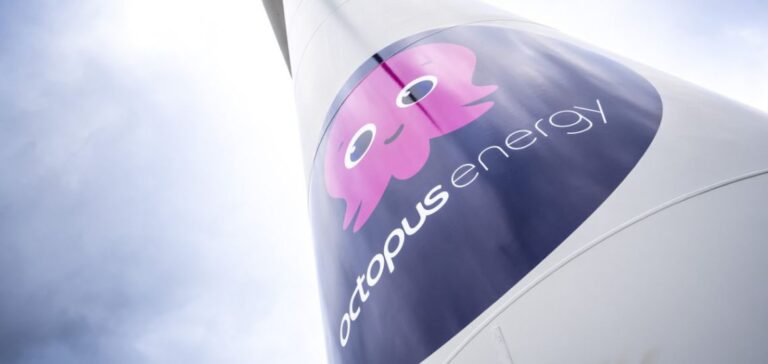Octopus Energy, a global energy and technology group, has announced its ambitious plan to invest £1.5 billion in the Asia Pacific energy market by 2027. This significant investment is designed to accelerate the region’s transition to a cleaner, smarter energy system, while solidifying Octopus Energy’s position as a global leader in renewable energy and technology.
Octopus Energy optimizes its technology platform with its technology center in Tokyo
As a result of this commitment, Octopus Energy plans to allocate £1.2 billion to solar and wind power generation in the Asia-Pacific region, half of which will go to Japanese renewables. Recognizing the importance of its Asian headquarters, the company also plans to invest an additional £300 million to expand its technology innovation and power sales center in Tokyo. This expansion will allow Octopus Energy to increase its workforce tenfold by 2027, creating 1,000 green jobs for British and local talent.
The Tokyo Technology Center has been instrumental in developing cutting-edge features for Octopus Energy’s technology platform, Kraken. By increasing investment in this team, the company aims to optimize performance and create more innovative solutions that reduce bills for consumers in the UK and beyond.
Octopus Energy’s commitment builds on its successful partnership with Japanese energy giant, Tokyo Gas, which resulted in the launch of a joint venture in 2021. With nearly 200,000 retail customers, Japan is now Octopus Energy’s second largest market after the UK. The company’s new business in Japan is growing rapidly, adding thousands of domestic customers each week and targeting millions more in the coming years.
Leveraging this strategic partnership with Tokyo Gas, Octopus Energy’s production team plans to raise £400 million from investors in the Asia Pacific region over the next five years. These funds will be used to build more wind and solar farms in the UK, while bringing valuable energy expertise to Europe and strengthening supply chains.
This investment is part of Japan’s commitment to a clean energy future, especially after the recent agreement by G7 ministers to accelerate the development of renewable energy. The country aims to increase offshore wind capacity by 150 GW and solar capacity to over 1 TW by 2030.
UK-Japan bilateral collaboration on renewable energy and offshore wind
The significance of Octopus Energy’s investment in Japan’s renewable energy sector is recognized by Julia Longbottom, the British Ambassador to Japan. She sees this commitment as a demonstration of Octopus Energy’s strategic vision and a vote of confidence in Japan’s vast and largely untapped renewable energy potential.
Greg Jackson, founder of Octopus Energy Group, emphasizes the importance of international cooperation to achieve an energy transition that benefits consumers, economies and the climate. He highlights the strengthening of the partnership with Tokyo Gas and expresses his satisfaction at being able to invest more in Japan while strengthening the links between Octopus Energy’s operations in Australia, New Zealand and Singapore with the UK and Europe. Jackson believes that this investment will help create a unique global technology ecosystem for the benefit of all.
Hajime Nakamura, CEO of Octopus Energy in Japan, echoes the excitement surrounding this investment, noting its potential to significantly boost renewable energy development in the Asia-Pacific region. Nakamura says Octopus Energy will continue to promote sustainability in Japan through its smart technology and by creating initiatives and services that allow customers to maximize the use of green electrons when they are abundant.
Octopus Energy’s expansion and investment has been facilitated by the Comprehensive and Progressive Partnership for Trans-Pacific Trade (CPTPP) agreement. This agreement offers UK businesses increased protection and opportunities in member countries, strengthening the ties between the UK and CPTPP member nations. In addition, the UK-Japan Renewable Energy and Offshore Wind Framework Agreement allows for collaboration between the two countries on innovative projects, sharing of expertise and harnessing the considerable potential of offshore wind energy.
As such, Octopus Energy’s commitment to invest £1.5 billion in the Asia-Pacific energy market represents a significant step towards accelerating the region’s transition to a cleaner, smarter energy system. With a focus on solar and wind power generation, especially in Japan, Octopus Energy aims to expand its technology innovation and energy sales center in Tokyo, while creating green jobs and reducing costs for consumers.






















